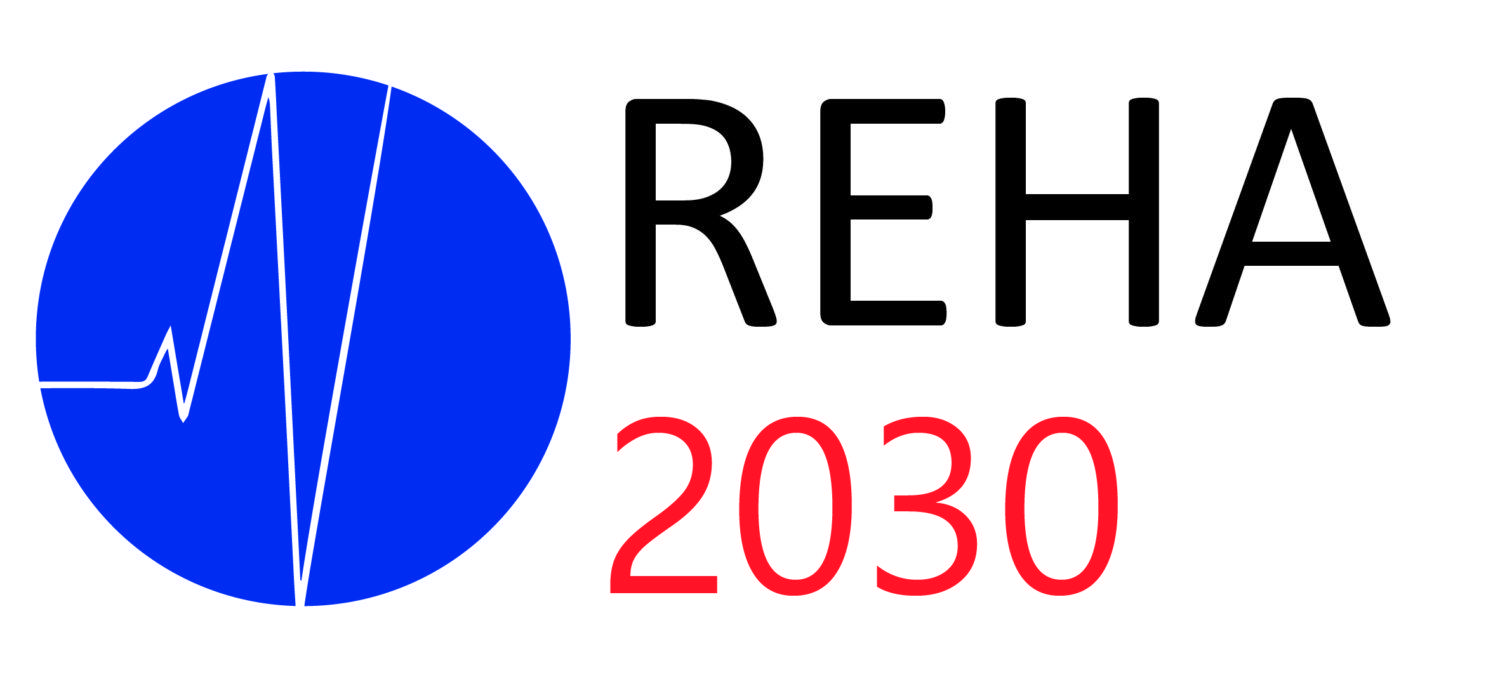REHA2030 – A new age of rehabilitation has begun
Tele rehabilitation does not mean that therapeutic care is provided far away from medical professionals via technologized remote instructions. Rather, tele-rehabilitation means that patients have the opportunity to take charge of and improve their rehabilitation progress in their own homes using coordinated technological aids and under the Internet-based guidance of specialist therapeutic staff.
Securing therapeutic follow-up and local care is particularly precarious in rural areas: long distances to therapy centres and clinics, lack of individual mobility or limited access to public transport, dwindling large family structures to support the recovery process make it difficult to continue rehabilitation measures after a stay in a rehabilitation clinic.
The Interreg Si-At project REHA2030 of the Carinthia University of Applied Sciences – together with 4 partners – is dedicated to the research and development of tele-rehabilitation after strokes, which is to be carried out as an internet-based service in the patients’ home. The special aspects of the region – demographic change, concentration of medical care in urban areas – encourage the choice of this topic.
Goals of the project
In the three years of the project, the focus will be on stroke patients with hand-finger mobility disorders. In iterative development loops, a service model for tele-rehabilitation will be designed with the involvement of various stakeholders: Patients, clinics, therapy centres and therapists, providers of ICT solutions and rehabilitation robotics, insurance companies and other companies in the field of telemedical care. On the other hand, a robotic therapy device for playful, technology-supported therapy is being developed with the involvement of patients and therapists. During the course of the project, the foundation stone for the long-term goal will also be laid: To enable tele-rehabilitation as a high-quality, humane and affordable service for the most diverse rehabilitation needs.
Tele-Rehabilitation as a service can only be seen and worked on comprehensively by bundling different expertise. The five-part, transnational consortium of academic, clinical and economic partners covers the different points of view on the topic of tele-rehabilitation with a broad spectrum of expertise:
– Development and evaluation of demand-oriented, technical solutions to support a self-determined life of elderly people with a focus on usefulness and everyday integration (Research Group Active & Assisted Living, FH Kärnten, AT)
– Development of a service model taking into account all relevant stakeholders and research of the market diffusion of radical innovations (Research Group Entrepreneurship & Entrepreneurship Education, FH Kärnten, AT)
– Implementation expertise for technology-supported therapy and therapy devices for all age groups, all phases of rehabilitation, all degrees of motor impairment and all body areas (Tyromotion GmbH, Stmk, AT)
– ICT solutions for the telecare sector with a focus on the needs of older people (MKS d.o.o, Ljubljana, SI)
– Clinical expertise in the field of stroke rehabilitation (Rehabilitation Clinic for Stroke Patients Uri Soča, Ljubljana, SI, Austrian Clinic to be selected)
– Development of a robotic therapy device for mobilization of hand and finger (Laboratory of Robotics, Faculty of Electrical Engineering, University of Ljubljana, SI)
The implementation of the project is made possible by ERDF funding from the Interreg Programme Slovenia – Austria. Project start: 01.01.2019, project end: 31.12.2021
| Project Acronym | REHA 2030 |
| Project Long Title | Postclinical rehabilitation of stroke patients in rural areas in 2030 – Telerehabilitation as a user-oriented service |
| Project Number | SIAT258 |
| Lead Partner | Carinthia University of Applied Sciences |
| Project Duration | 36 Monate |
| Project Start | 01.01.2019 |
| Project End | 31.12.2021 |
| Project Costs | 824.585,00 € |
| Project Funding | 660.043,75 € |
| Programme Type | Interreg V-A Slowenien-Österreich |





